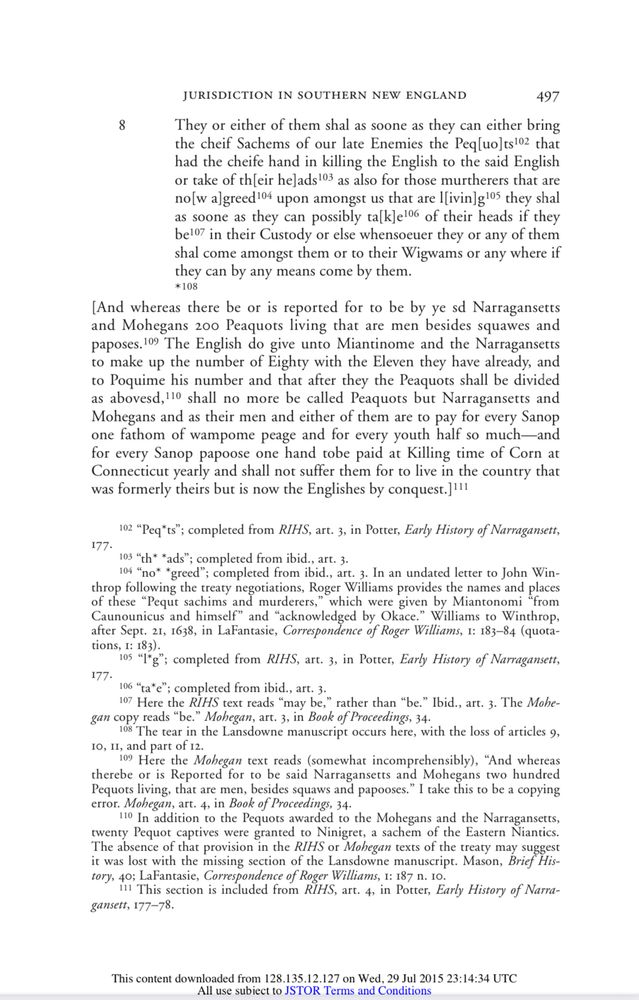
Daragh Grant
@daraghjgrant.bsky.social
4.4K followers
1.1K following
93 posts
UChicago. Early American history; colonialism and empire; legal history; history of political thought. https://www.daraghjgrant.com
Posts
Media
Videos
Starter Packs
Pinned
Daragh Grant
@daraghjgrant.bsky.social
· Nov 12

Sir Edward Coke’s Infidel: Imperial Anxiety and the Colonial Origins of a “Strange Extrajudicial Opinion”* | The Journal of Modern History: Vol 95, No 4
Abstract In the middle of his report on the Case of the Post-nati, also known as Calvin’s Case (1608), Sir Edward Coke drew a distinction between the status of laws in conquered Christian and conquere...
www.journals.uchicago.edu
Reposted by Daragh Grant
Daragh Grant
@daraghjgrant.bsky.social
· Jan 15
Daragh Grant
@daraghjgrant.bsky.social
· Jan 14
Daragh Grant
@daraghjgrant.bsky.social
· Jan 14
Daragh Grant
@daraghjgrant.bsky.social
· Jan 14
Daragh Grant
@daraghjgrant.bsky.social
· Jan 14
Reposted by Daragh Grant
Reposted by Daragh Grant
Reposted by Daragh Grant
Donal Coffey
@donalcoffey.bsky.social
· Dec 30

The Irish Times view on the National Archives: a vital resource which has been consistently neglected
The service is chronically understaffed and underfunded and too many archive services are undermined by the restrictions under which they operate
www.irishtimes.com
Daragh Grant
@daraghjgrant.bsky.social
· Dec 29
Reposted by Daragh Grant
Gabriel Winant
@gabrielwinant.bsky.social
· Dec 28

Project a Black Planet: The Art and Culture of Panafrica | The Art Institute of Chicago
The first major exhibition to survey Pan-Africanism’s cultural manifestations gathers together some 350 objects, spanning the 1920s to the present, made by artists on four continents: Africa, Nor...
www.artic.edu
Daragh Grant
@daraghjgrant.bsky.social
· Dec 29
Daragh Grant
@daraghjgrant.bsky.social
· Dec 28
Daragh Grant
@daraghjgrant.bsky.social
· Dec 28
Reposted by Daragh Grant















